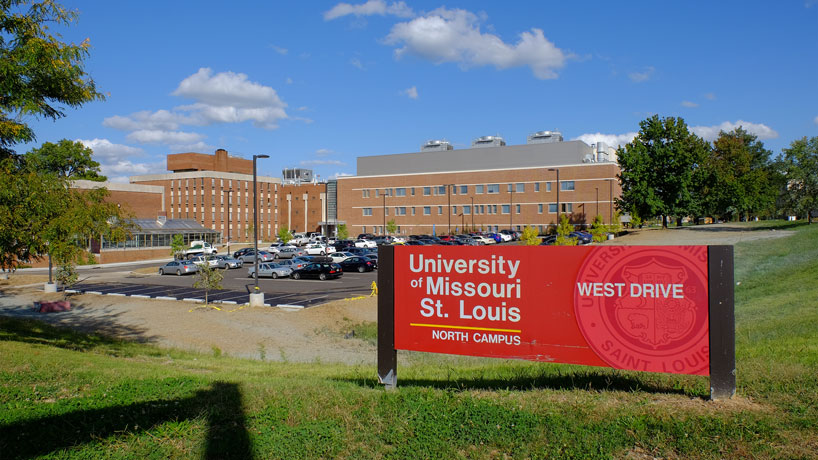The Missouri Louis Stokes Alliance for Minority Participation (MOLSAMP) is a collaborative effort sustained by a coalition of seven public universities, one private university, and one community college to significantly increase the number of underrepresented minority students, (URM) statewide who complete undergraduate and advanced degrees in science, technology, engineering, and mathematics, (STEM) fields. This goal will be accomplished through the implementation of a variety of activities and cohesiveness among the individual campuses to promote the recruitment, retention, and graduation of URM students.
Purpose
Increase minority graduates in science, technology, engineering, and math.
MOLSAMP is a collaborative effort sustained by a coalition of seven public universities, one private university, and one community college to significantly increase the number of underrepresented minority students, (URM) statewide who complete undergraduate and advanced degrees in science, technology, engineering, and mathematics, (STEM) fields. This goal will be accomplished through the implementation of a variety of activities and cohesiveness among the individual campuses to promote the recruitment, retention, and graduation of URM students.
About the Program
The Louis Stokes Alliances for Minority Participation (LSAMP) is an NSF-sponsored program designed to broaden participation in science, technology, engineering, and technology (STEM) disciplines and increase the number of students receiving baccalaureate degrees and ultimately graduate degrees in STEM disciplines.
The objectives of the alliance are to:
- Increase the total number of URMs graduating with STEM degrees in the MOLSAMP Alliance by 15% in five years.
- Increase the second-to-third year persistence rate of Level 1 students to 75% or higher.
- Increase the number of students engaged in undergraduate research or other scholarly activity to meet or exceed the national baseline; and
- Increase the number of URMs entering post-baccalaureate programs in STEM fields or the STEM workforce immediately after graduation by 25%.
Who is Eligible?
-
Students must be:
- a US citizen or permanent resident
- a member of one of the listed historically underrepresented populations (as defined by the National Science Foundation): African American, Hispanic American, American Indian, Alaska Native, Native Hawaiian, and Native Pacific Islander
- Enrolled full-time and have a declared undergraduate major in Biology, Chemistry, Computer Science, Cybersecurity, Engineering, Information Systems, Mathematics, Physics
- academic level | freshman or sophmore
- An overall GPA of 2.5 or better
Select 2024-2025 STEM Opportunities
Emerging Researchers National Conference
Washington DC
Dates TBA
Annual MOLSAMP Undergraduate Research Symposium
Spring 2025
(More details forthcoming)
Summer Research/Internship Opportunities
Mizzou Undergraduate Research Summer Program
Visit the website.
UMSL Undergraduate Research Symposium
Spring 2025
Date TBA
Visit the website.
Leah Menshouse Springer Summer Opportunities Program
Summer 2025
Application deadline January 17, 2025
Visit the website.
Additional Opportunities
Siteman Cancer Center Plan to Enhance Diversity (PED) MOLSAMP Collaboration
Visit the website.
Registration information can be found on the Siteman Cancer Site.
Fall 2024 Virtual Seminar Series
- Friday, October 18, 2024, 12:00-1:00 PM (CST)
- Speaker: Jose Marcio Luna, PhD, Assistant Professor of Radiology, Mallinckrodt Institute of Radiology (WUSM)
- Friday, November 8, 2024, 12:00-1:00 PM (CST)
- Speaker: Mark Fiala, PhD, Assistant Professor of Medicine, DOM - Oncology (WUSM)
- Friday, January 24, 2024, 12:00-1:00 PM (CST)
- Speaker: Jessica Silva-Fisher, PhD, Assistant Professor of Medicine, Division of Oncology (WUSM)
- Friday, February 28, 2024, 12:00-1:00 PM (CST)
- Speaker: Kia Davis, ScD, MPH, Assistant Professor of Surgery, Division of Public Health Science
Follow Us
UMSL STEM Departments
- Biology
- Chemistry and Biochemistry
- Computer Science
- Engineering
- Information Systems
- Mathematics, Statistics, Physics and Astronomy

The UMSL Science Complex includes the Science Learning Building extension. (Photo by August Jennewein)
